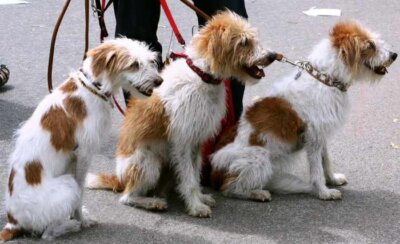
Where Vets Go When They Need to Know
Evidence-based veterinary testing, diagnosis and treatment depends on the ready availability of reliable information and statistical data. VetCompass, operated and maintained by the University of London’s Royal Veterinary College (RVC) is claimed as the world’s largest merged database of veterinary clinical records.
Risk Factors and Demographics in Companion Animal Disorders
The title VetCompass comes from a contraction of ‘Companion Animal Surveillance System’ a not-for-profit collaboration between the RVC and the University of Sydney. This international initiative aims to collate information and data on the range and frequency of domestic pet health issues. Analysis of the collected data provides veterinary professionals with the tools they need to identify important trends, risk factors and demographics in companion animal disorders.
VetCompass collects clinical and veterinary laboratory data from vets and vet labs in general practice on a day to day basis. The pooled data from a wide range of sources is then merged into an accessible single database making available the vast amount of data that would otherwise remain hidden away in thousands of unconnected local practice records.
Information from Almost 6 Million Animals
VetCompass began as pilot project collating data on the antibiotic and glucocorticoid treatments dispensed to pet animals in a small number of UK veterinary practices. From 2009, the initiative grew to include information from almost 6 million animals. Collaboration with the University of Sydney began in 2013 as ‘VetCompass Australia’. A targeted project, ‘VetCompass Equine’, designed to gather data on ailments and health risks to horses was launched in 2016.
The VetCompass approach to surveillance and data gathering has been applied to diseases ranging through epilepsy, cancer, skin disease, endocrinopathies and heart disease. As well as collating information on the disease, the project also gathers demographic facts and figures on such generalities as longevity and mortality, the occurrence of parasitism on pets and the frequency of accidents in dogs and cats.
Improved Road Safety Awareness
A recent VetCompass survey reported that although only 0.41% of dogs presented at UK vets were victims of road traffic collisions (RTC), almost 25% of those dogs subsequently died or required euthanasia. One demonstration of the benefit of such a large data set is the amount of detail it contains. The survey showed that male dogs were 40% more likely than females to suffer an RTC. Animals aged three years or less were almost 3 times more susceptible to RTC that dogs of 14 years or more. The authors hope that these facts will inform and encourage improved road safety awareness and better streetwise management of dog owners.
Visit our website to see our full range of Veterinary Products, www.vetlabsupplies.co.uk or contact us on 01798 874567.

